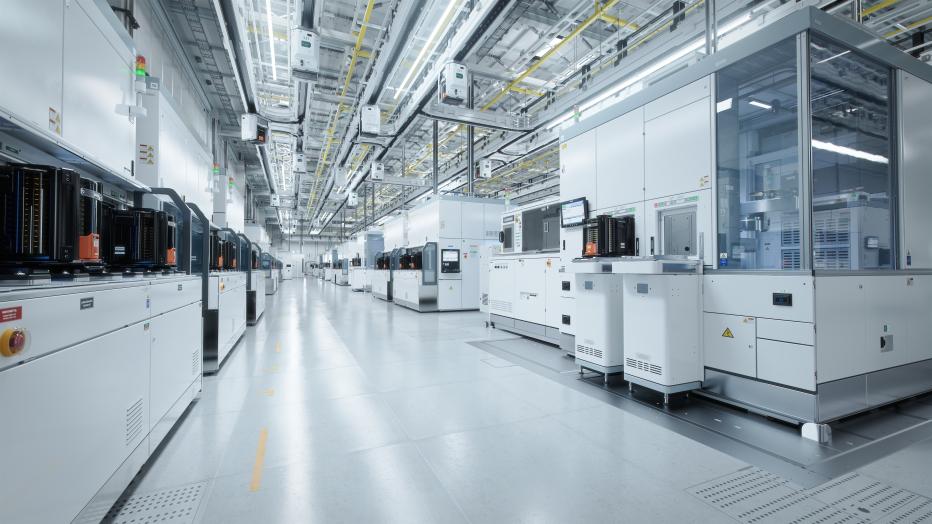







Sit down with our visionary team of thinkers, dreamers and doers to see what a day in the life is like.



A curated selection of some of the top-listened to and trending podcast episodes from our popular If/When podcast series, which has over 7M downloads to date.



Together with our visionary partner, PA Consulting, we're establishing our position in high end advisory services, creating a springboard to expand in high value offerings beyond the core.


At Jacobs, we're challenging today to reinvent tomorrow by solving the world's most critical problems for thriving cities, resilient environments, mission-critical outcomes, operational advancement, scientific discovery and cutting-edge manufacturing, turning abstract ideas into realities that transform the world for good. With approximately $16 billion in annual revenue and a talent force of more than 60,000, Jacobs provides a full spectrum of professional services including consulting, technical, scientific and project delivery for the government and private sector.



Jacobs. A world where you can.



As climate change threatens water security around the world, more communities are turning to water reuse as a resilient water supply solution and embracing the OneWater principle that all water has value. Jacobs has been supporting clients with water reuse programs for decades, beginning with the first applications of advanced wastewater treatment technologies in the 1960s. We provide our clients with a full range of services, from water reuse feasibility studies to design, construction and operations.



As our clients navigate the digital transformation and growing cyber risks, we have positioned ourselves at the forefront of this growth, adding digital capabilities, products and tools to serve a growing set of customers.



The only certainty about the future is uncertainty. Resilience is an attribute of a smarter planet, and requires planning and adapting ahead of potential threats. We help our clients survive, recover, adapt and thrive.



As a purpose-led company, we know we have a pivotal role to play in addressing the climate emergency. We consider this not only good business, but our duty to channel our technology-enabled expertise and capabilities toward benefitting people and the planet.



For more than 30 years, Jacobs has been responsible for planning and implementing Lead and Copper Rule-related strategies which protect millions of people in the U.S. and Canada. Our work includes enhanced water quality monitoring strategies, sampling plan development, harvested pipe-scale analysis, lead service line inventories and replacement plans, corrosion control studies and the incorporation of equity and environmental justice considerations into compliance programs.



Jacobs is working to help clients across the United States secure federal funding for projects that make our cities and communities more connected and sustainable. Working hand-in-hand with clients from coast to coast and everywhere in between, Jacobs develops bold, innovative solutions to address the nation’s toughest challenges.



Now more than ever, we appreciate the hard work, sacrifice and dedication of the medical profession in ensuring the health and safety of our communities.



Together, we are stronger. Together, we can transform the future.



We work in partnership, delivering some of the most challenging, diverse and innovative projects and programs globally across multiple sectors. We integrate complex interfaces across planning, procurement and delivery to help unlock better social, environmental and economic outcomes from mega and giga projects.



We’ve provided design-build services to the water sector for over 25 years and delivered more than 150 projects. We offer fully integrated design-build and design-build-operate capabilities to tackle the most complex water challenges and work in close collaboration with our clients.



Stories that capture our partnerships and innovative impact for a more connected, sustainable world



Jacobs has joined the Semiconductor Climate Consortium, a group of more than 70 semiconductor companies globally that are collaborating to accelerate greenhouse gas emissions (GHG) reductions in their operations and throughout the industry’s value chain.
SEMI, an industry association, has convened the consortium as part of its Sustainability Initiative, which seeks to reduce the carbon footprint of the semiconductor industry “while seeking the balance between People, Planet and Profits.” The consortium supports the Paris Climate Agreement and efforts to limit the increase in global temperatures to 1.5 degrees Celsius.
Semiconductor manufacturing is extremely complex, requiring thousands of manufacturing steps and a supply chain of chemicals and specialized production equipment that stretches across the planet. This makes incorporating and reporting on sustainability progress difficult. The consortium will help companies share and align on approaches to reducing carbon emissions and to set near-term and long-term targets to reach net zero GHG emissions by 2050. The group will also help industry members align on best practices to standardize and publicly report progress and Scope 1, 2 & 3 emissions annually.
Jacobs designs and engineers semiconductor chip manufacturing facilities for some of the largest chip-makers in the world, leveraging its deep expertise in sustainable design from decades of experience with these and other advanced facilities, including data centers, life sciences facilities, electric vehicle and battery manufacturing plants.
Jacobs can help consortium members reduce their carbon footprint through best practices in using renewable energy, implementing technologies to recycle and reuse water, and selecting sites that encourage resource and energy efficiency, all while encouraging global supply chain partners to do the same.
Demand for technology from smartphones and computers to healthcare devices and critical defense and technology systems—and the chips that power them—is only increasing. In fact, this industry is expected to double to more than $1 trillion in global revenues by 2023. As semiconductor companies build more fabs, incorporating sustainability is critical.
Together, Jacobs and the consortium’s member companies will work toward implementing more climate-responsible practices and help the semiconductor industry play its role in reducing global GHG emissions—and create a more connected, sustainable world.